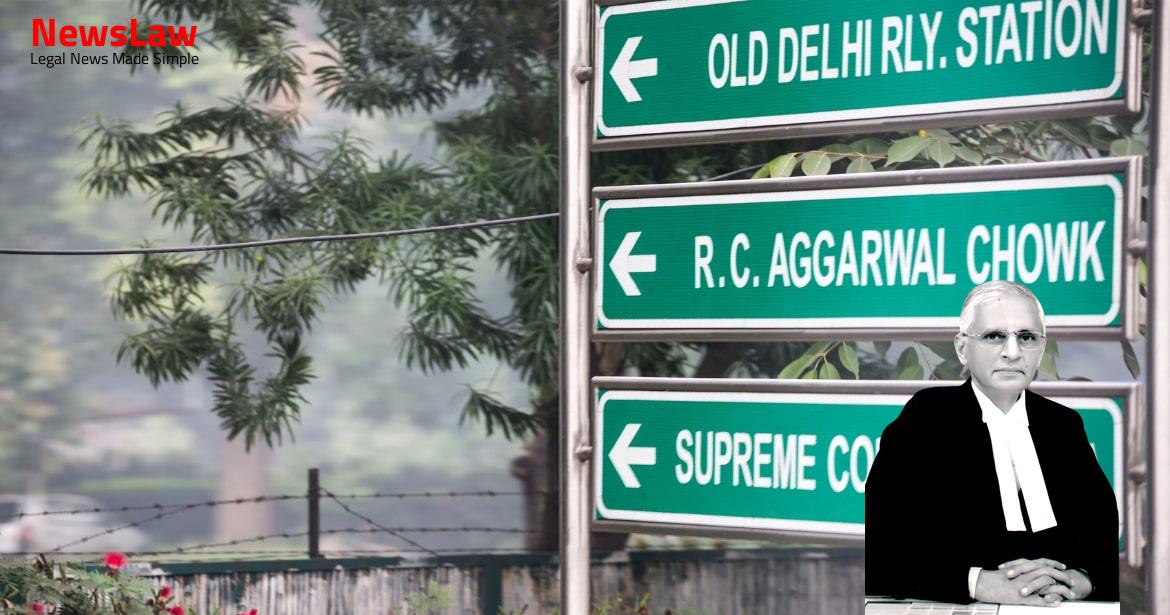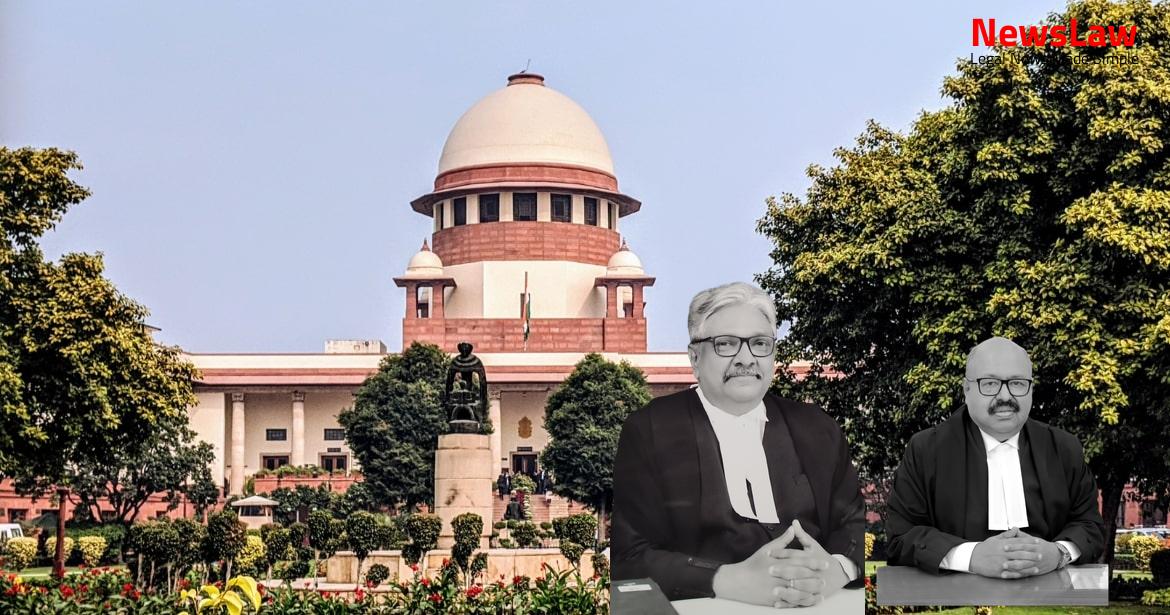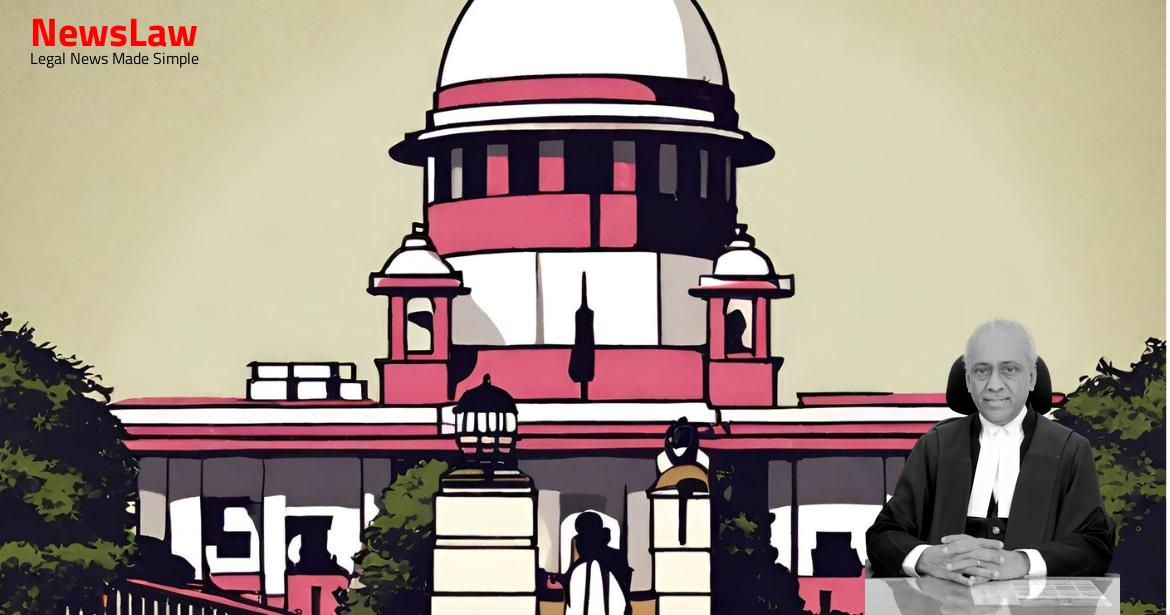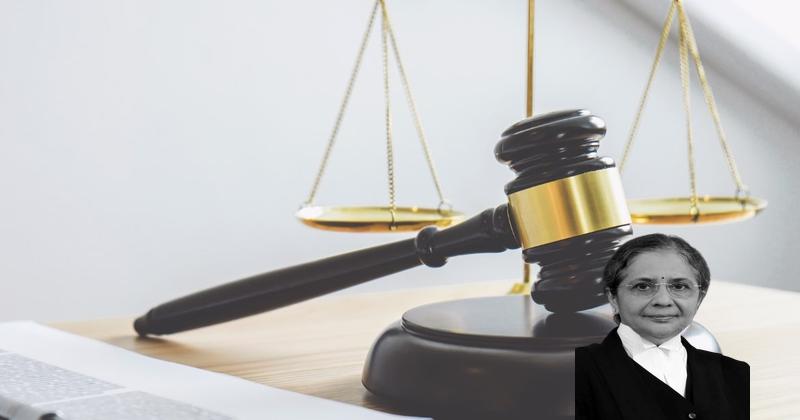Explore the in-depth legal analysis conducted by the Court regarding irregularities in a cognizance order and its implications on criminal proceedings. The case provides valuable insights into the changes brought about by the CrPC of 1973 and the significance of procedural adherence in ensuring justice. Stay tuned to unravel the intricate legal dynamics at play in this noteworthy judgment.
Facts
- The Court held that the trial will not be vitiated due to an irregularity in the cognizance order.
- Section 207 and Section 207A of the Code of 1898 detailed the procedure for committing a case to the Court of Sessions.
- The CrPC of 1973 changed the process and did not grant the accused a substantial right before committal, which was key in the previous Code.
- The Magistrate had no power to take cognizance of offenses under the SC and ST Act according to the proviso to Section 14.
- The Court determined that offences under the MMDR Act and IPC have distinct ingredients.
- The Magistrate can take cognizance upon receiving a police report for IPC offenses without requiring a complaint.
- Complaints are needed for violation of the MMDR Act provisions under Section 22.
- The High Court allowed for criminal proceedings to be initiated based on a police report.
- The appeal outcome allowed the Special Judge to arraign other accused based on available material.
- The Court emphasized the role change of the committing court post-1973 and dismissed the contention on applicability of Section 465.
- The High Court was petitioned under Section 482 CrPC to quash charges initiated by the Magistrate.
- The Court was to rule on whether the Special Court’s cognizance order without committal could invalidate the proceedings after trial completion.
- The Magistrate deviated from the prescribed procedure by ordering an investigation instead of following Section 200 or 202 CrPC.
- The Court decision in State of MP v. Bhooraji highlighted the necessity for the Magistrate to apply his mind before taking cognizance of an offence.
- The High Court dismissed quashing petitions on specific grounds related to the MMDR Act.
- The court directed the Central Empowered Committee to submit a report regarding six mining leases in the Bellary Reserve Forests.
- Accused individuals were involved in unauthorized stocking and transportation of iron ore, causing a loss to the state exchequer.
- A Special Investigation Team was constituted by the Government of Karnataka to investigate illegal mining.
- Various criminal cases were registered against the accused for offenses under different sections of the Penal Code and the MMDR Act.
- The accused were alleged to have been involved in illegal mining, transportation, and sale of iron ore.
- Orders were passed for investigation and registration of cases against the accused persons.
- Concerns were raised over illegal mining activities in Karnataka and directions were given for investigation by the CBI.
- Multiple appeals, petitions, and complaints were filed regarding the criminal activities related to mining and export of iron ore.
Also Read: Electoral Malpractices in Mayor Election
Issue
- Whether the principle in Section 465 CrPC applies to pre-trial stage orders
- Evaluation of whether failure of justice would occur if cognizance order is not quashed
Also Read: Balancing Power and Transparency: Electoral Bonds Struck Down, Disclosure Mandated
Arguments
- The counsel for the appellant contended that previous enactments granted the power to grant pardon to Special Courts, which is absent in the current Act, indicating the intentional omission of such power.
- The Special Court under the Act comprises a High Court Judge, while Section 306 only mentions categories of Magistrates for the provision.
- The respondent argued that a higher level of application of mind is required by the judge while taking cognizance based on a private complaint under Section 200 CrPC than on a police report.
- The Special Court, being a Sessions Court, cannot take cognizance of offences without the case being committed to it as per Section 193 CrPC.
- The appellant’s counsel argued that A-1’s position as the Managing Director of Canara Overseas Private Limited during the relevant period makes him vicariously liable under Section 23 of the MMDR Act for the alleged offense of selling adulterated beverage.
- The appellant cited various cases to support their argument, including Sunil Bharati Mittal, Shiva Kumar Jatia v. NCT of Delhi, Sunil Sethi v. State of Andhra Pradesh, and Ravindranatha Bajpe v. Mangalore Special Economic Zone Ltd.
- The appellant contended that the Special Judge’s order of taking cognizance lacked a demonstrable application of mind, referencing the decisions in various cases such as Pepsi Foods Ltd. v. Special Judicial Magistrate, Fakhruddin Ahmad v. State of Uttaranchal, Mehmood Ul Rehman v. Khazir Mohammad Tunda, Sunil Bharti Mittal v. CBI, and Ravindranatha Bajpe v. Bangalore Special Economic Zone Ltd.
Also Read: Recall of Resolution Plan Approval: Legal Analysis
Analysis
- The Special Court does not have the power to take cognizance of an offence under the MMDR Act without the case being committed to it by the Magistrate under Section 209 CrPC.
- The High Court has recorded that a complaint was filed under Section 22 read with Section 21(i) of the MMDR Act containing allegations identical to those in the charge sheet and SIT report.
- The gradation of irregularity in a cognizance order under Sections 460 and 461 and the seriousness of the offence play a role in determining the impact of any failure of justice.
- The power to take cognizance must be of the offence and not the offender.
- Section 220 cannot be held to impliedly repeal the application of Section 220 CrPC to the proceedings before the Special Court.
- The determination of whether the conditions stipulated in Section 23 of the MMDR Act have been fulfilled is a matter of trial.
- Environmental crime transcends borders and time, impacting the planet and all its natural systems.
- The Court needs to consider factors like the seriousness of the offence and apparent intention to prolong proceedings while determining failure of justice.
- The Special Court can take cognizance of offences under the MMDR Act and conduct a joint trial with other offences if permissible under Section 220 CrPC.
- The delay in the commencement of trials is a significant concern addressed in Chapter XXXV of the CrPC.
- The Special Judge acted illegally in taking cognizance of the accused without application of mind.
- A-1 (Pradeep S. Wodeyar) cannot be held vicariously liable as he was not in charge of the company at the time of the alleged transactions and was in Indonesia.
- The Special Court under Section 30(B) of the MMDR Act has jurisdiction only for certain offences under the Act.
- Section 193 CrPC bars the Sessions Court from taking cognizance of any offense unless it has been committed by a Magistrate.
- Section 409 IPC deals with criminal breach of trust by a public servant, banker, or agent, while Section 420 IPC deals with cheating.
- Sections 4(1) and 4(1A) of the MMDR Act specify conditions for reconnaissance, prospecting, mining, and storage of materials.
- Special Courts established under a statute can try IPC offences only if expressly provided.
- Section 465 CrPC states that orders by a competent court are not reversible unless a ‘failure of justice’ is proven.
- The CrPC provisions apply to proceedings before the Special Court unless contrary to the MMDR Act.
- Section 30B of the MMDR Act establishes a Special Court for offenses under Section 4 of the Act.
- The Special Judge issued summons for various offenses including those under the IPC and MMDR Act, among others.
- The proviso to Section 23(1) provides exceptions to vicarious liability based on the accused’s knowledge and diligence.
- Section 209 CrPC allows Magistrates to commit cases exclusively triable by the Sessions Court to the latter.
- Taking cognizance under Section 190(1)(c) by an unauthorized Magistrate renders the proceedings void.
- Section 209 CrPC determines the transfer of cases to the Sessions Court if exclusively triable there.
- The objection of failure of justice must be proven to be more significant than the rights of the victim and the right to a speedy trial.
- The decisions in Moly and Vidyadharan are considered per incuriam, while Bhooraji has been correctly decided.
- In Gangula Ashok, the trial had not commenced compared to cases where the trial had been completed and the accused were convicted.
- The interpretation of Section 141 of the Negotiable Instruments Act noted the distinct position of Managing Directors and Joint Managing Directors in companies.
- The decision in Pepsi Foods Ltd. related to a complaint under the Prevention of Food Adulteration Act, where it was held that the order summoning the accused could not be sustained due to lack of proper exercise by the Special Judge.
- In Sunil Bharti Mittal, the issue arose where the appellants had not been arraigned as accused in the charge-sheet, highlighting a wrong application of the principle of alter ego by the Magistrate.
- Chief Justice Altamas Kabir affirmed the view that the Magistrate has the power to disagree with police reports and proceed against accused persons independently.
- Section 22 of the MMDR Act limits prosecution to written complaints by authorized officers for contraventions under the Act.
- In cases where telecom companies were accused, the Special Judge had summoned individuals like CMD, MD, and directors based on their alter ego relationship with the companies.
- The differences in procedures between the CrPC and specific statutes were discussed to provide harmonious construction of laws.
- Various cases were referenced to determine the extent of authority of Managing Directors in the commission of offenses by companies under different Acts.
Decision
- Pending application(s) to stand disposed of
- No merit found in the appeals
- Appeals to be dismissed
Case Title: PRADEEP S. WODEYAR Vs. THE STATE OF KARNATAKA (2021 INSC 798)
Case Number: Crl.A. No.-001288-001288 / 2021



